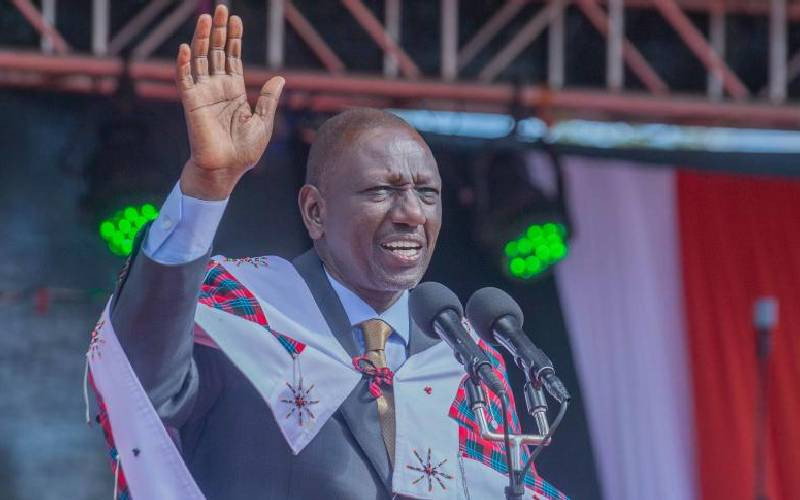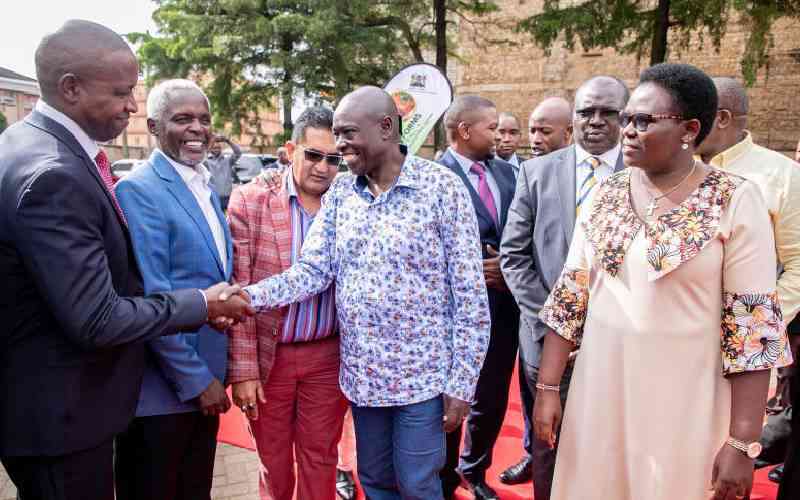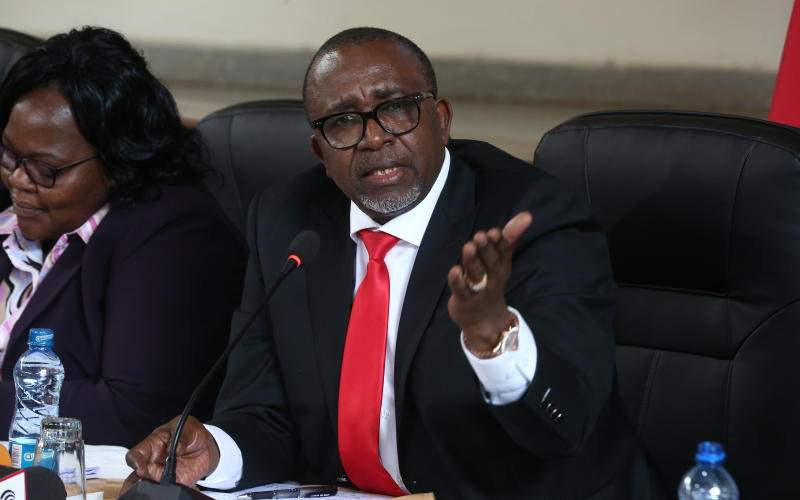Deputy President Rigathi Gachagua and Agriculture CS Mithika Linturi provided reassurance to coffee farmers, promising a brighter future for the crop.
The assurance came in response to the proposals put forward by farmers during the two-day Coffee Summit held in Meru, which focused on areas such as legislation, marketing, and funding.
One of the key proposals discussed was the need for early payments to farmers, as well as increased financial support. Gachagua said the Kenya Kwanza government will organise a meeting with MPs representing coffee-growing regions to deliberate on the legislative proposals.
He expressed confidence in the integrity of the MPs, assuring farmers that they would not be influenced by the cartels responsible for their challenges.
With the conclusion of the summit, the government is determined to take action and turn the farmers’ fortunes around. The DP affirmed the government’s commitment, stating that they would not disappoint the farmers and emphasising the success of the summit.
-
.
Keep Reading
-
It’s not all doom and gloom as coffee farmers share victories
-
Ruto requires the Omtatah-Kwame voice of truth in running his affairs
-
Gachagua, leaders talk tough on coffee cartels, pledge to reward efforts
-
Government to revoke licences of ‘cartels’ in coffee sector
“We have a responsibility to translate the proposals into action. We will stand by you. We will align ourselves with our MPs. Cartels should not waste their time with our MPs. I know these people (MPs) will remain steadfast,” he said.
Linturi also pledged the ministry’s support in increasing coffee production.
“We are fully committed to taking all necessary actions within the Ministry of Agriculture to address the issues of increasing production and productivity. We will not falter in our efforts and will go above and beyond to support our farmers in boosting their production,” he said.
During the discussions, farmers and various stakeholders put forward a range of proposals aimed at revitalising the coffee sub-sector. These included suggestions for implementing cash payments for coffee parchment and reducing the timelines for payments upon coffee delivery.
The farmers emphasised the need to empower cooperative societies, enabling them to independently grade their parchment for fair payment. They also urged the promotion of coffee houses across the country to encourage local consumption.
In addition, the farmers recommended expanding the cherry advance fund to provide loans to cooperative societies and reducing the time between coffee delivery by farmers and the subsequent payment for coffee sales.
The farmers stressed the importance of maintaining control over coffee grading and daily reserve price setting, rather than leaving these responsibilities solely in the hands of intermediaries who do not represent the interests of farmers.
They also called for a reduction in overhead deductions, particularly at the cooperative society level.
“Samson Koskei, a farmer from Western Kenya, expressed the need for millers and marketers to refrain from lending money to cooperative societies due to potential conflicts of interest,” he said.
The farmers further emphasised the importance of increased support from both the national and county governments towards coffee cooperative societies and unions. They also called for the facilitation of trade for high-quality coffee, either through direct sales channels or through the Nairobi Coffee Exchange.
Additionally, the farmers recommended that the government should continue empowering farmers to directly sell their clean coffee at the Nairobi Coffee Exchange trading floor.





